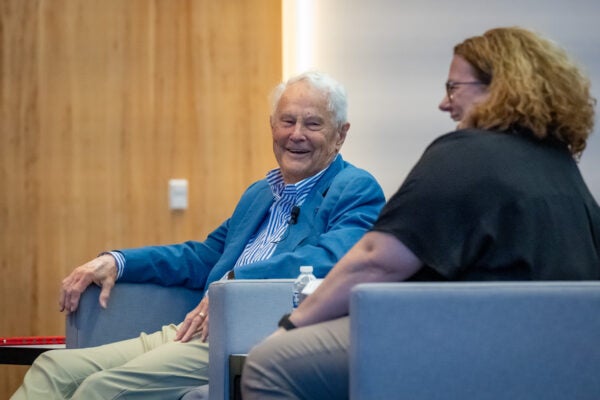Trailblazers
Insights, challenges, and encouragement from Black entrepreneurs who charted their own paths after their time at McCombs
By Alberta Phillips
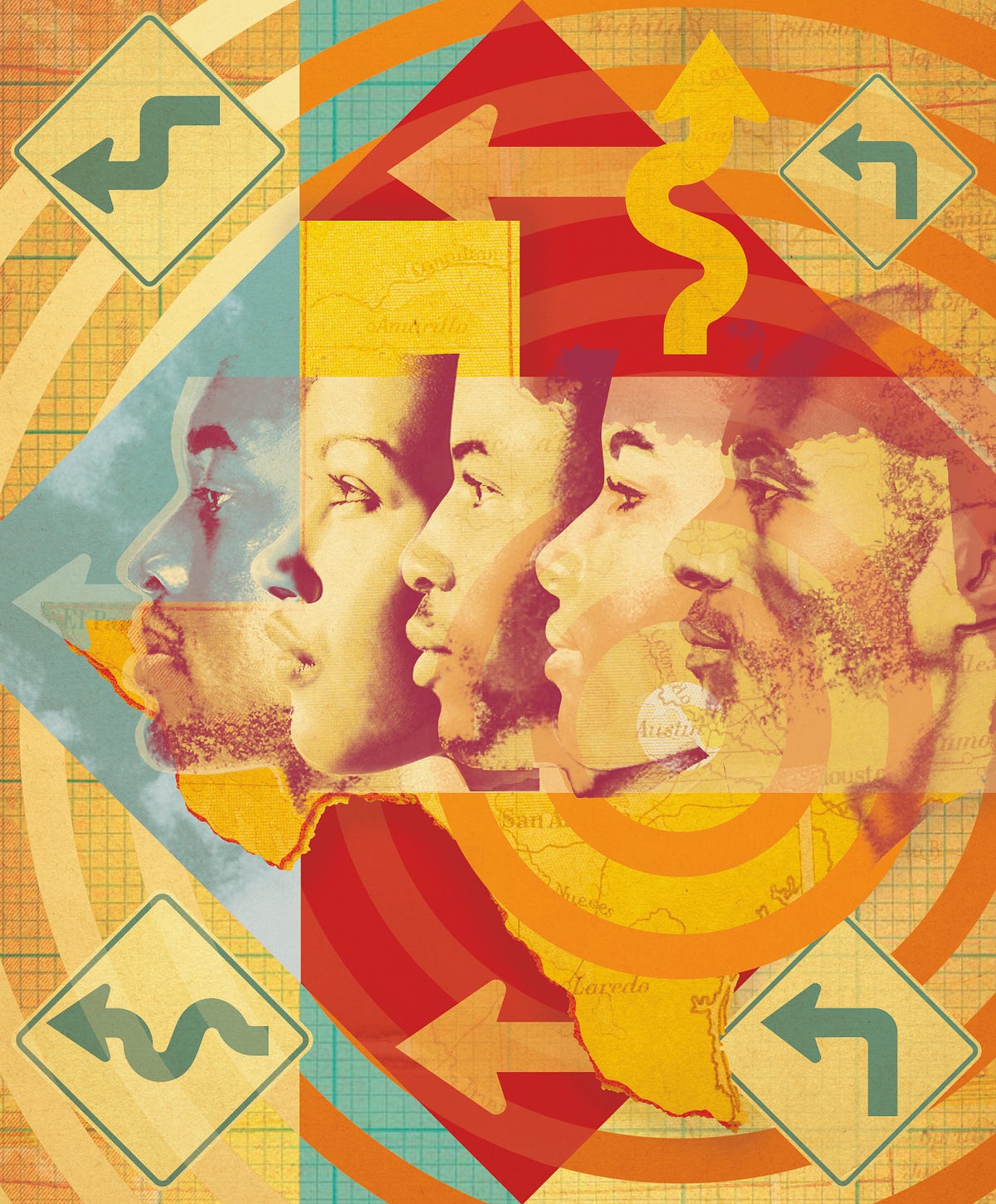
John Sibley Butler comes from a long line of African American entrepreneurs. Virtually every Butler dating to the early 1900s, he says, was a business founder and landowner.
So it’s not surprising that when Butler, a professor of management at the McCombs School of Business who holds the J. Marion West Chair for Constructive Capitalism, came to UT Austin 46 years ago, he was deeply interested in entrepreneurship. He had seen the transformative impact of private ownership, innovation, and self-reliance in his own life.
But back in the 1970s when Butler came to Texas, the business school focused on the same subjects most of its peers emphasized: accounting, finance, marketing, and management. To the extent that entrepreneurship existed at all at UT, it was relegated to mentions in textbooks, mostly in psychology, sociology, and economics.
Butler became a big part of changing that. He is among several trailblazers who helped build and shape entrepreneurship into one of the business school’s signatures. A reputation for entrepreneurship has “changed the entire opportunity structure of Austin, creating a ‘technopolis’ with great opportunities,” says Butler, faculty director of the Jon Brumley Texas Venture Labs.
Texas Venture Labs brings in startups from the Austin community to connect with UT graduate students, faculty members, and other resources that can help improve and strengthen new businesses. Through that program and others at UT, Butler has collaborated with startups and mentored hundreds of students of all races and ethnicities.
As the racial justice movement sweeps across all areas of American life, from business to education, Butler sees renewed urgency — and opportunities — to help African Americans fulfill their entrepreneurial dreams. “What I see now, all of a sudden, is people want to do something to help Black entrepreneurs,” he says.
And ownership, Butler says, continues to be a pathway to financial independence, particularly for African Americans. “When you are successful, it lifts up everything.”
McCombs Magazine spoke with five Black McCombs alumni entrepreneurs about their experiences. Their responses follow and were condensed and lightly edited.
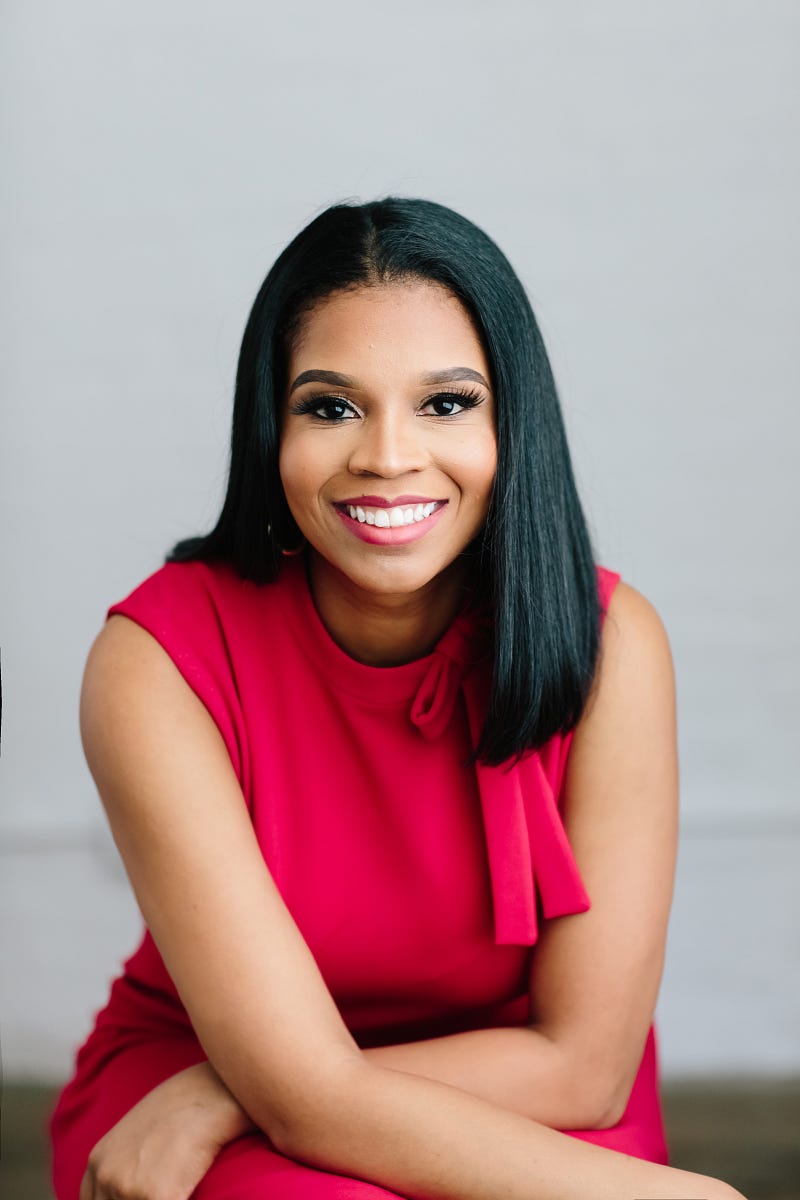
Mandy Price
Co-founder and CEO of Kanarys, a technology platform that fosters collaboration between companies and employees to improve diversity, equity, and inclusion in the workplace.
Dallas, BBA ’03 Business Honors
Choosing McCombs: As a high school student, I knew I wanted to pursue business, but at the time, I didn’t realize the strength and rigor of the McCombs School. I chose McCombs because I got a full scholarship from the Terry Foundation. McCombs has been a great supporter. I’m on the BBA Advisory Board and the Values Ambassador Chair, and they have been extremely encouraging to me throughout my career. Kanarys started with McCombs and UT grads. They were our first employees.
Why you’re an entrepreneur: Like most people, I am driven by passion. When I was practicing law, I was on my firm’s diversity committee, and I saw firsthand the way organizations struggled to bring up these issues. I wanted to create those long-term feedback loops by helping employees collectively voice what they are facing.
Biggest challenges: The challenges I faced as a student are similar to those I faced in the workplace. It’s heartening to know that the Business Honors Program now has a Black affinity group. But many (Black students) are talking about the same things as when I was there, like being overlooked for team projects by peers who view students as less capable or qualified. Starting a woman-led business, and in particular, a women-of-color-led business, has been incredibly difficult. According to Pitch-Book, women raised 2.3% of venture capital money in 2018; Black women raised only 0.06% of VC funding.
A successful entrepreneur has … Tenacity. Being an entrepreneur isn’t easy. You not only are making sacrifices for your business, but also for your employees. There are many sleepless nights, many days when we’ve had to find a way out of no way. You have to keep pushing on.
Facing racial judgments: There have been many incidents. At my former law firm during a client meeting, a fellow partner referred to me as the “diverse partner” — and not the firm’s expert in private equity. He didn’t think anything was wrong with that.
Best advice: It’s a mistake when people believe only individuals with power can make a change. Change can begin at every level, even from the ground up. I’m very encouraged with what I’m seeing at McCombs with diversity and inclusion. McCombs is thinking about these issues from a systematic approach.
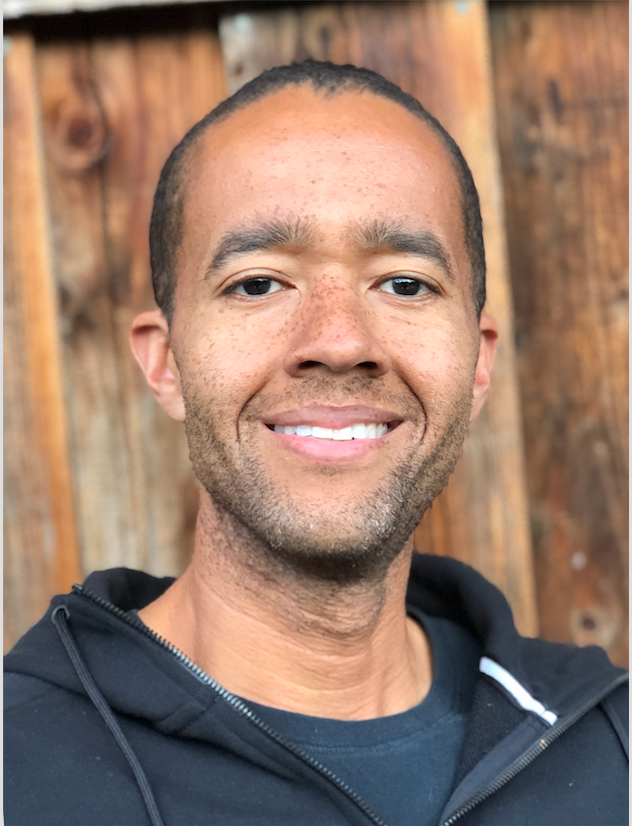
Paul Pine
Co-founder of Crayon Industries, which designs and builds websites and apps.
San Francisco, MBA ’12
Choosing McCombs: When I decided to get my MBA, Austin as a town was on my short list. Right from the start McCombs was a combination of laid back, warm, and open to anybody. I look back now and I know it was the right choice. Austin was a tech-forward town with a lot of folks from around the country and world. I’d pick that school a hundred times again without blinking.
Why you’re an entrepreneur: It has to be my dad, who no longer is with us. In the 1980s he and another guy went into business, doing telephone work for schools in Greenville County (South Carolina). My dad was old school, typing up invoices at the end of the day. I saw all of that. I met some incredible people at McCombs. Because of so many genuine connections there, I knew I had enough people in my corner to take some crazy risks, and it would be OK. Not just financially, but emotionally.
Biggest challenges: I don’t know if it was so much a challenge at McCombs, but a challenge with understanding who I was becoming, not just as a working person, but as a member of society. That internal questioning about who I want to be next stays with me — in a good way. At McCombs, I was establishing an identity. Now, every two to three years, I check in to understand if I’m on a trajectory I want to be on.
A successful entrepreneur is … Hard-headed and stubborn. You are going to get slapped a lot by reality, circumstances, timing. You are going to hit a wall and the answer isn’t, well, I hit a wall. It’s being hard-headed and willing to hustle.
Facing racial judgments: It’s more subtle with me. I’m 6 feet 5 inches and kind of a slender build. It’s always been, ‘Where did you play basketball?’ No damn place. I went to MIT and Stanford — ask me where I learned calculus.
Best advice: Talk to your network. There are people who want to help you. You don’t have to do it by yourself.
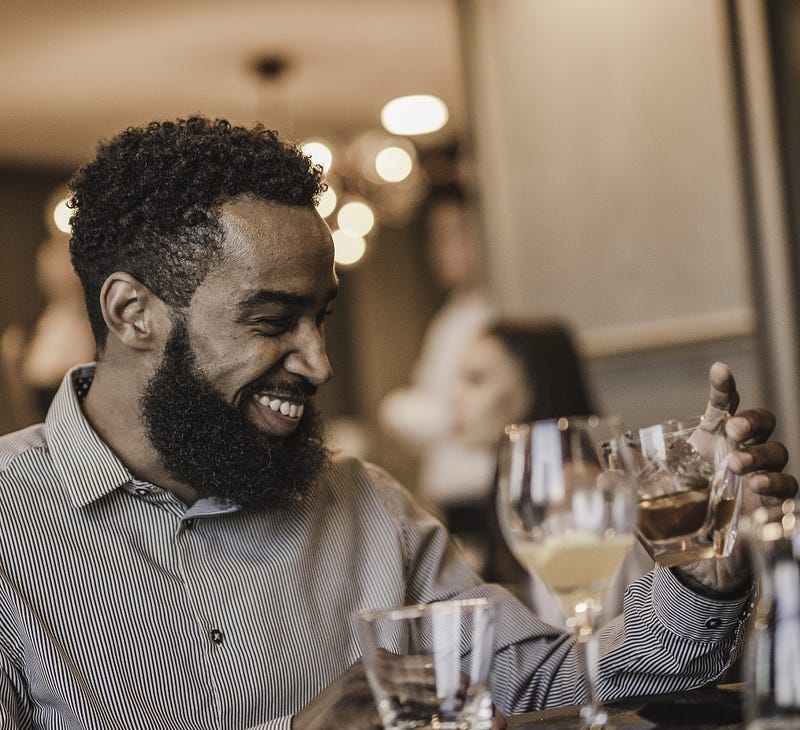
Brian A.M. Williams
Founder of Wayne and Reed, a venture builder and consultancy that creates startups and revenue-producing products.
Austin, MBA ’13
Choosing McCombs: The school is highly ranked and has a lot of world-class resources. I like how the teachers were very straightforward and intellectually intense. Those two years at McCombs were the fastest and most intense academic years I experienced: like drinking from a firehose. As for networking, oh, wow. McCombs is the network that keeps on giving. I use it regularly.
Why you’re an entrepreneur: I’ve always wanted to run my own business. That’s been in me a long time, and why I got my MBA.
I haven’t seen a Black grad student come out of UT without a sense of pride. The world has a way of trying to separate us from that, and that is particularly hard to do with McCombs grads. — Brian A.M. Williams
Biggest challenges: In my class there were four, maybe five Black students. That was challenging, given the intensity of the program. The UT MBA program is one of the best in the world. So, when you don’t have a strong community of folks like you, you don’t have something to balance that intensity. Within the corporate space, it’s difficult to find the sponsors who can actually advocate for you. There’s also a challenge of resources from the investment community. There are events that bring entrepreneurs together, but they tend not to be entrepreneurs who look like me. Those are spaces where innovation happens. That limits your resources when it comes to innovation.
A successful entrepreneur has … Flexibility — big time. Also, patience and balance. Flexibility because the plan is not going to go as planned, but there needs to be a plan. A good entrepreneur can see how to change and when to change. When the plan is changing and that causes anxiety, patience is the answer to that.
Facing racial judgments: Oh, God, yes. I don’t mean to laugh like that. I used to keep a notebook. On the funny side, I went home to Pennsylvania and was getting off the highway, when an officer pulled me over. He went to the University of Oklahoma and I joked that there was no use defending myself because I’m a Longhorn. He had pulled me over for no reason, but we were from rival schools, and that eased those circumstances.
Advice: Stay authentic. I haven’t seen a Black grad student come out of UT without a sense of pride. The world has a way of trying to separate us from that, and that is particularly hard to do with McCombs grads.
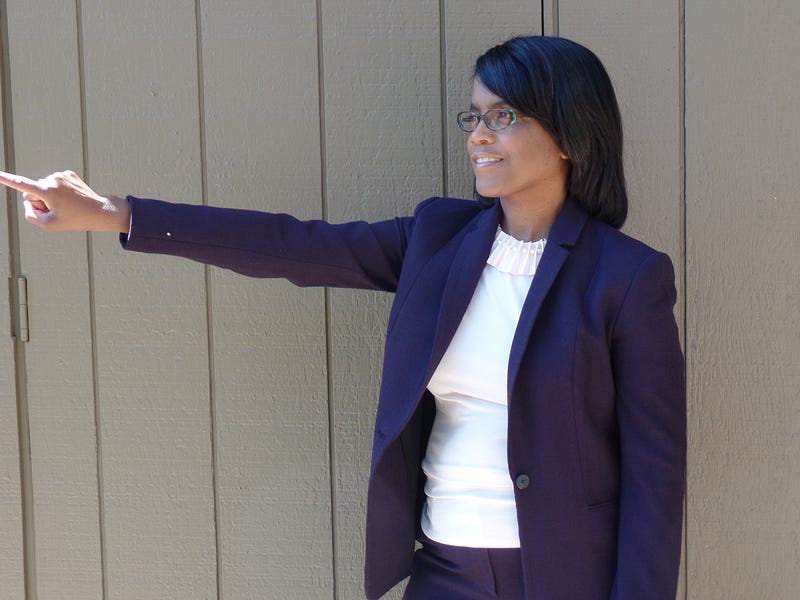
Michelle Williams
Founder and CEO of Williams Learning Solutions Inc., which offers an interactive learning platform to raise student achievement in science.
San Carlos, California, BBA ’92
Choosing McCombs: At the time I was in high school in Dallas, McCombs had an incredible reputation.
Why you’re an entrepreneur: Probably because of my daughter, but also Dr. Butler had a lot to do with it. While I was attending the University of California at Berkeley to earn a Ph.D., a report came out showing U.S. students were behind their peers in science and mathematics globally. We are one of the wealthiest countries in the world. How is it that our kids are so far behind other economically developed countries? I was determined to start my own company. So, I’ve been bootstrapping it. I was raised by my grandparents. I didn’t grow up in an entrepreneurial family, and frankly I was unaware as to what entrepreneurship even meant. Dr. Butler has been a mentor since the end of my freshman year at UT Austin. My connection to him and others seeded my thinking in this area.
Biggest challenges: The first semester I worked hard and studied all the time, but I didn’t make the grades I wanted, so I had to figure that out. A McCombs Ph.D. student encouraged me to take a study skills and time management class. As a result, my grades improved significantly.
A successful entrepreneur … Never gives up. This requires motivation and drive. For me, this started at UT and prepared me for who I am today.
Best advice: Follow your dreams and do not be afraid to fail. Pick yourself up and keep going.
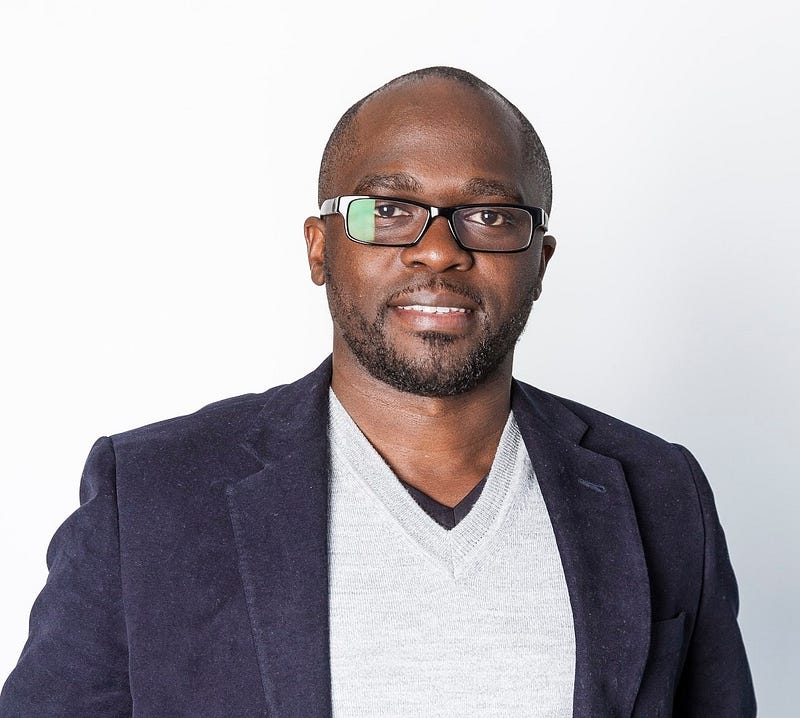
Luke Kyohere
Founder and chief technology officer at Beyon-ic, a payments technology company that helps businesses in emerging markets go cashless.
Washington, D.C., MBA ’13
Choosing McCombs: It’s a unique program. There are plenty of MBA programs but not a lot that had the tech aspect and early-stage aspect. You learn how to run a business and how to start a business. I loved it. It was a busy year, and most of us were still working.
Why you’re an entrepreneur: The exposure I had to programming. I started writing programming when I was 15. I was moved at how I was able to create something totally new, to write a piece of software that was helpful to you and to others. The person who became a co-founder in 2013, I met at McCombs. Also, some early investors came through the McCombs network. Without McCombs, I would not have met the network that became a very strong support system for me.
Biggest challenges: I moved to the U.S. around my mid-20s and then it became how to adapt to a different culture. In Uganda, we learn that our work speaks for itself. In the U.S., you have to be loud and speak up. Otherwise, people will pass you by.
A successful entrepreneur … You’ve got to believe in yourself and your idea to persuade others to believe in it. It can get lonely. Doubt creeps in. That is why your support network is so important.
Facing racial judgments: Black racial profiling happens across the world. I made America my home just eight years ago, and I have a very different story than African Americans who have been here all their lives and are subjected to systemic racism. I’ve been subjected to more routine checks than any of my white colleagues when traveling internationally. Travel agents want to double check my travel documents, check my bags. They want to confirm twice that I have TSA precheck. Best advice: Reach out, because when we do that, there are a lot of people who can help, teach, and mentor. If you can run so far on your own, you can run farther with someone by your side.
This article appeared in the winter 2020 issue of McCombs magazine. Click on the link to see the full issue.
About this Post
Share:
